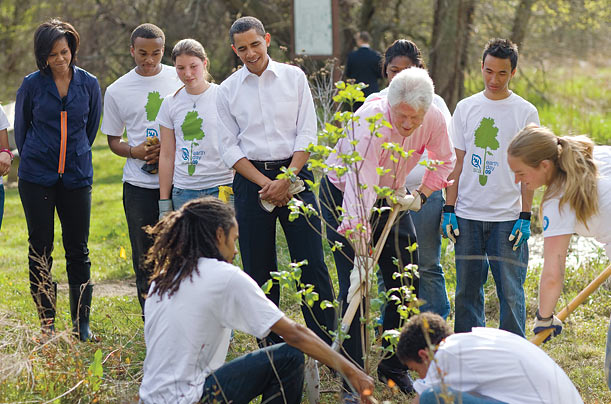
With his left arm, Ted Kennedy leaned on a metal cane; with his right, he was braced by his old pal Orrin Hatch. The two Senators, the President and First Lady, and former President Bill Clinton had come to the SEED School in Southeast Washington, a working-class neighborhood that rarely gets a glimpse of a President, let alone two. The occasion: the signing of landmark national-service legislation that had been sponsored by the Republican Hatch, from Utah, and the ailing Democratic lion from Massachusetts.
No one could miss the symbolism. The last living brother of the President who created the Peace Corps, alongside the President who was inspired by J.F.K. and created AmeriCorps (which, under the Edward M. Kennedy Serve America Act, will triple in size) and the new President who has been talking about national service since he was a candidate in the snows of Iowa.
National service often feels like motherhood and apple pie — who's not for it? Indeed, the bill had overwhelming bipartisan support. But at a time of economic distress and dislocation, service has come to seem like a silver bullet that can help address some of our most intractable problems. Applications for AmeriCorps, the Peace Corps and Teach for America are pouring in — there are many more applicants than spots. Is that due to the economy? Perhaps. The bill authorizes $5.7 billion for national service over the next five years, which can jump-start a range of programs to help schools, health care and the environment. But as everyone claps one another on the back, that clichéd newspaper headline looms: NOW FOR THE HARD PART. Ideas are easy, especially high-minded ones; execution is tough.
After the signing, Presidents Obama and Clinton went off to plant trees with student volunteers. Obama sidled over to watch Clinton use a pickax to dig a hole, which the former President had obviously done before. Peering over the hole, President Obama said, "I just want to get in here so I don't screw it up."